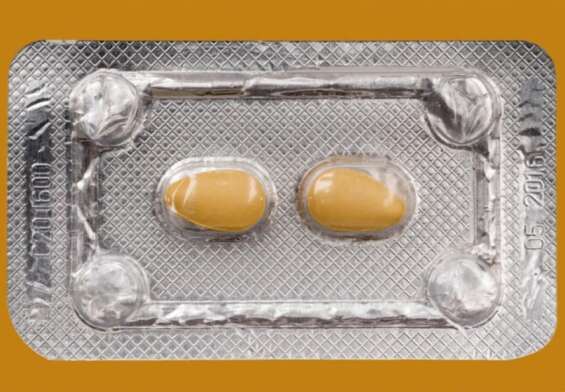
Penis Shrinkage: Explore What Causes It & How to Prevent It!
Hey there FitGAG readers! Are you worried about your penis size? Are you experiencing shrinkage down there? Well, don’t worry, you’re not alone! Penis shrinkage is a common problem that many men face, but it’s not something that has to hold you back. In this article, we’re going to dive deep into the topic of penis shrinkage, discussing what causes it and how you can prevent it. So, buckle up and get ready to learn everything you need to know about this sensitive issue.
Understanding Penis Shrinkage
In this section, we will explore the definition of penis shrinkage, the common causes, risk factors, and symptoms. It is important to understand this topic as it can affect any man at any age and can have a significant impact on their self-esteem, relationships, and overall quality of life. So, let’s dive in.
What is Penis Shrinkage?
Penis shrinkage is the reduction in the size of the penis, either in length or girth, that occurs gradually or suddenly. It can affect the erect or flaccid state of the penis, and its severity can vary from one individual to another. The decrease in size can be temporary or permanent, depending on the underlying cause.
Common Causes Of Penis Shrinkage
Several factors can contribute to penis shrinkage, including medical conditions, lifestyle choices, and psychological factors. Here are some of the most common causes of penis shrinkage:
- Aging
- Peyronie’s disease
- Low testosterone levels
- Diabetes
- Obesity
- High blood pressure
- Smoking
- Drug and alcohol abuse
- Lack of exercise
- Poor nutrition
- Stress
Risk Factors For Penis Shrinkage
While penis shrinkage can affect any man, some factors can increase the risk of developing this condition. These risk factors include:
- Age
- Obesity
- High blood pressure
- Diabetes
- Smoking
- Sedentary lifestyle
- Poor nutrition
- Stress and anxiety
Symptoms Of Penis Shrinkage
The most obvious symptom of penis shrinkage is a reduction in the size of the penis. This can be seen either in its erect or flaccid state. Other symptoms may include:
- Difficulty achieving or maintaining an erection
- Pain during sexual intercourse
- Decreased sexual desire
- Anxiety or depression related to the condition
- Reduced self-esteem or confidence
Understanding the definition, common causes, risk factors, and symptoms of penis shrinkage is crucial to its prevention, diagnosis, and treatment.
Medical Conditions that Can Cause Penis Shrinkage
While there are several factors that can contribute to this condition, medical conditions are some of the most common causes. It is important to note that some of these conditions can be managed or treated with proper medical care.
Peyronie’s Disease
Peyronie’s disease is a condition in which scar tissue forms inside the penis, causing it to curve or become indented during erections. This can result in pain during sexual intercourse and, in severe cases, erectile dysfunction. The exact cause of Peyronie’s disease is unknown, but it is believed to be a result of injury or trauma to the penis.
Low Testosterone Levels
Testosterone is a hormone that plays a crucial role in male sexual development and function. Low levels of testosterone can lead to a decrease in sexual desire, erectile dysfunction, and penis shrinkage. This condition, known as hypogonadism, can be caused by a variety of factors, including aging, certain medications, and medical conditions such as obesity and diabetes.
Diabetes
Diabetes is a chronic condition that affects how the body processes glucose, resulting in high blood sugar levels. Over time, high blood sugar can damage blood vessels and nerves in the penis, leading to erectile dysfunction and penis shrinkage. It is important for individuals with diabetes to manage their blood sugar levels to prevent these complications.
Obesity
Obesity is a major risk factor for several medical conditions, including heart disease, diabetes, and high blood pressure. It can also lead to a decrease in testosterone levels, which can contribute to penis shrinkage. Losing weight through a healthy diet and exercise can help manage this condition and prevent further complications.
High Blood Pressure
High blood pressure, also known as hypertension, can damage blood vessels and restrict blood flow to the penis, leading to erectile dysfunction and penis shrinkage. This condition can be managed with medication and lifestyle changes, such as regular exercise and a healthy diet.
Medical conditions such as Peyronie’s disease, low testosterone levels, diabetes, obesity, and high blood pressure can all contribute to penis shrinkage. If you are experiencing this condition, it is important to seek medical attention to determine the underlying cause and receive proper treatment.
Lifestyle Factors that Can Cause Penis Shrinkage
While medical conditions are a common cause of this condition, lifestyle choices can also have a significant impact. It is important to understand the role that lifestyle factors play in penis shrinkage and take steps to prevent or manage them.
Smoking
Smoking is a well-known risk factor for several medical conditions, including heart disease, cancer, and lung disease. It can also contribute to penis shrinkage by restricting blood flow to the penis, leading to erectile dysfunction and a decrease in penis size. Quitting smoking can help improve overall health and prevent further complications.
Drug And Alcohol Abuse
Drug and alcohol abuse can also have a negative impact on sexual function and penis size. Substance abuse can lead to a decrease in testosterone levels and cause damage to blood vessels in the penis. This can result in erectile dysfunction and a decrease in penis size. Seeking treatment for substance abuse can help prevent further damage and improve overall health.
Lack Of Exercise
Regular exercise is important for overall health and can also have a positive impact on sexual function. Lack of exercise can contribute to obesity, high blood pressure, and other medical conditions that can lead to penis shrinkage. Incorporating regular physical activity into your routine can help improve overall health and prevent further complications.
Poor Nutrition
A diet high in processed foods and low in nutrients can contribute to several medical conditions, including obesity, diabetes, and high blood pressure. These conditions can also contribute to penis shrinkage. Eating a healthy, balanced diet rich in fruits, vegetables, lean proteins, and whole grains can help manage these conditions and prevent further complications.
Stress
Stress can have a negative impact on overall health, including sexual function. Chronic stress can lead to anxiety, depression, and relationship problems, which can all contribute to penis shrinkage. Finding healthy ways to manage stress, such as exercise, meditation, or therapy, can help improve overall health and prevent further complications.
Lifestyle factors such as smoking, drug and alcohol abuse, lack of exercise, poor nutrition, and stress can all contribute to penis shrinkage. Making healthy lifestyle choices and seeking treatment for any underlying medical conditions or psychological issues can help prevent or manage this condition.
Psychological Factors that Can Cause Penis Shrinkage
Penis shrinkage is not always caused by physical factors; psychological factors can also contribute to this condition. Psychological factors can manifest in different ways and cause various symptoms, and understanding them can help people seek the proper treatment.
Anxiety
Anxiety is a common psychological factor that can cause penis shrinkage. Anxiety can be related to performance anxiety or general anxiety. Performance anxiety can cause erectile dysfunction and affect the size of the penis. On the other hand, general anxiety can cause a hormonal imbalance in the body, which can lead to penis shrinkage.
Depression
Depression can cause a lack of interest in sexual activity, which can lead to the penis losing its firmness and size. Depression can also affect hormone levels in the body, leading to a decrease in testosterone production, which can result in penis shrinkage.
Relationship Problems
Relationship problems can be stressful and cause emotional distress, leading to psychological factors such as anxiety and depression. These can lead to a lack of sexual interest and affect the penis size.
Sexual Trauma
Sexual trauma can have long-lasting effects on the body and the mind. It can lead to psychological factors such as anxiety and depression, affecting the size and firmness of the penis. It is important to seek therapy to overcome these issues.
It is essential to address psychological factors that contribute to penis shrinkage as it can have a significant impact on a person’s overall well-being. Treating the underlying psychological condition can help alleviate symptoms and improve penis size.
Treatment for psychological factors that cause penis shrinkage can include talk therapy, such as cognitive-behavioral therapy or couples therapy. Medications such as antidepressants or antianxiety drugs may also be prescribed to manage symptoms. In some cases, a combination of talk therapy and medication may be used to treat the underlying psychological condition.
It is important to seek professional help if experiencing symptoms of psychological factors contributing to penis shrinkage. Addressing these issues can lead to a healthier and happier life.
Diagnosis and Treatment of Penis Shrinkage
If you’re experiencing penis shrinkage, the first step is to see a doctor for a proper diagnosis. The doctor will start by taking a detailed medical history and performing a physical exam. During the exam, the doctor may ask about your symptoms, your sexual history, and any medications you’re taking.
Once the doctor has gathered all the necessary information, they may order some tests to help with the diagnosis. These tests may include:
Blood Tests
Blood tests can help identify any underlying medical conditions that may be causing the penis shrinkage, such as low testosterone levels or diabetes. The blood test can also reveal any abnormalities that could be causing the issue.
Imaging Tests
Imaging tests such as ultrasound or MRI can help the doctor see inside the body and identify any abnormalities in the penis that may be causing the shrinkage. These tests can also help diagnose Peyronie’s disease, a condition that can cause curvature of the penis and erectile dysfunction.
Medications
Depending on the cause of the penis shrinkage, the doctor may prescribe medications to help treat the underlying condition. For example, if the issue is due to low testosterone levels, hormone replacement therapy may be recommended.
Penile Injections
Penile injections, such as alprostadil, can help increase blood flow to the penis and improve erections. These injections are administered directly into the penis and can help treat erectile dysfunction and penis shrinkage.
Surgery
In severe cases of penis shrinkage, surgery may be necessary. The most common surgery for this issue is penile prosthesis surgery, which involves inserting an inflatable device into the penis to help maintain an erection.
It’s important to note that treatment options for penis shrinkage vary depending on the underlying cause. Therefore, it’s crucial to seek medical attention to receive an accurate diagnosis and appropriate treatment plan. In addition to medical treatment, lifestyle changes such as quitting smoking, reducing alcohol intake, and increasing physical activity can also help improve penis health and prevent further shrinkage.
Prevention of Penis Shrinkage
While there are many factors that can contribute to penis shrinkage, there are also a variety of steps you can take to prevent it from happening. Here are some strategies to consider:
Healthy Lifestyle Choices
Maintaining a healthy lifestyle can go a long way in preventing penis shrinkage. Some key steps to take include:
- Eating a balanced diet that’s rich in fruits, vegetables, whole grains, lean proteins, and healthy fats
- Getting regular exercise, such as brisk walking, swimming, or cycling
- Maintaining a healthy weight
- Limiting alcohol intake and avoiding smoking
- Managing stress through techniques like meditation, yoga, or deep breathing exercises
Managing Medical Conditions
If you have any medical conditions that may contribute to penis shrinkage, it’s important to manage them as best you can. This may include:
- Working with your doctor to control blood pressure, diabetes, or other conditions that may affect circulation
- Taking medications as prescribed for any underlying medical conditions
- Discussing hormone replacement therapy or other options with your doctor if you have low testosterone levels
Seeking Therapy For Psychological Issues
If you’re experiencing anxiety, depression, relationship problems, or sexual trauma that may contribute to penis shrinkage, seeking therapy can be a helpful step. Some options to consider include:
- Cognitive-behavioral therapy (CBT), which can help you change negative thought patterns and develop coping strategies
- Couples therapy, which can help you and your partner work through any relationship issues that may be impacting your sex life
- Trauma-focused therapy, which can help you process and heal from any past sexual trauma
Regular Sexual Activity
Finally, engaging in regular sexual activity can help keep your penis healthy and prevent shrinkage. This is because sexual arousal and stimulation increase blood flow to the penis, which can help keep it healthy and maintain its size.
Taking steps to maintain a healthy lifestyle, manage medical conditions, seek therapy for psychological issues, and engage in regular sexual activity can all help prevent penis shrinkage. If you are experiencing any symptoms of penis shrinkage, it’s important to seek medical attention to determine the underlying cause and explore treatment options. Remember, prevention is key, so don’t be afraid to take steps to protect your sexual health and wellbeing.
Conclusion
And there you have it, folks! We’ve covered everything you need to know about penis shrinkage, from the common causes to the treatments and prevention methods. As FitGAG, we know how important sexual health is for overall wellbeing, and we hope that this article has provided valuable information to help you take control of your sexual health.
Remember, if you’re experiencing penis shrinkage or any other sexual health concerns, seek medical attention and make healthy lifestyle choices to prevent further complications. Stay fit and healthy, FitGAG readers!











